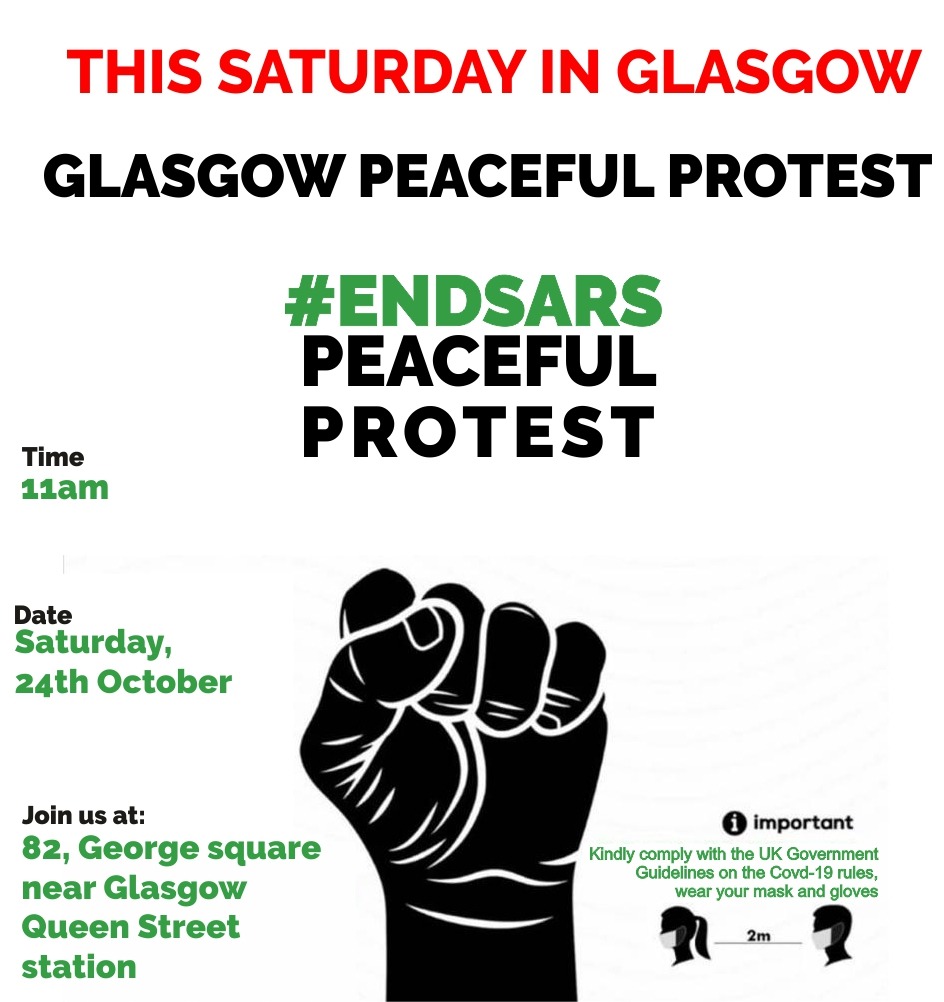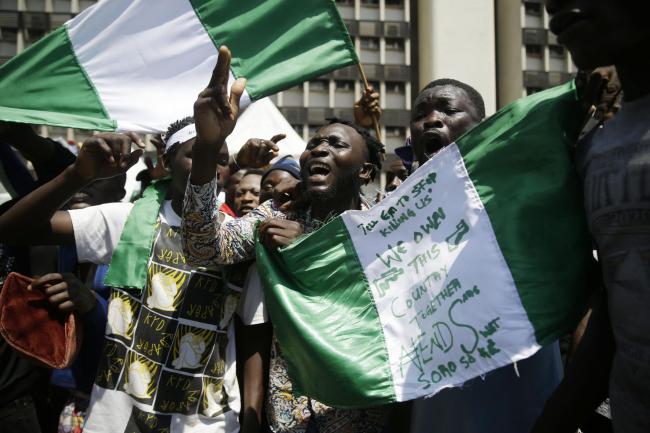For context, employees of the Nigerian police force have a starting salary of approximately N9019 per month. That’s around £18.01. For a constable, the monthly salary is N46,000, or £91.86. To give an idea of how much this is in real terms, a book bought on my last visit to Lagos in 2016 was N4500 (£8.98) and prices have vastly inflated since the pandemic took hold. This is compounded by the fact that the American Dollar and British Pound are considered to be of more value and often the only accepted currencies.
Before Covid-19 – and the accompanying restrictions – the Academic Staff Union of Universities (ASUU) embarked on strike action to force the government to fulfil agreements made at a truce more than 10 years ago. Then, as now, the ASUU called on the government to reduce its economic profligacy, which has accelerated the wilful neglect and decline of public universities in Nigeria.
A senior lecturer more than over six years’ experience receives approximately N220,000 (£439) per month, a salary which many lecturers use to pay for materials required to teach students. President Buhari’s (pictured below) 2021 budget allocated only 6.7% to education, a gross shortfall to the Unesco-prescribed minimum of 26%. As the ASUU states: “Hungry teachers can neither teach well nor carry out research. And poorly taught students can neither excel nor propel their nation to great heights.” Despite recent orders from the Nigerian government to resume teaching, public universities remain closed.
These are but a few examples, many others can be found including in transport and housing. In Lagos there is currently no city-wide rail service despite decades-old plans to undertake public transport investment. Lagos’s islands shimmer with unoccupied luxury developments, priced out of the reach of all but the city’s richest, while the masses continue to make do with slums. It is estimated Lagos has an existing shortage of more than five million homes and needs to deliver 200,000 houses annually to keep up with the growing population.
Like the West, the gulf between the rich and poor is widening and futures free of continued and increasing economic, climate and social crisis seem illusive. Those who see this most clearly are the youth. And now, instead of seeking brighter futures, which often end in the tragic loss of life owing to border restrictions and anti-Black modern slavery, the Nigerian youth are staying – and fighting back in the form of the #endsars movement.
THE global pandemic and the Black Lives Matter movement has reverberated throughout 2020 and the world. This is especially true when being Black is a category applied to the diaspora and the descendants of imperial ventures. I wondered how much the Black Lives Matter movement had inspired #endsars. I asked my friend in Lagos if Black Lives Matter has had much of an impact in Nigeria. She tells me: “This motivated the #endsars movement… after watching the West stand up for George Floyd, that sort of fuelled the moment.”
For weeks, the people of Nigeria have been courageously protesting from Abuja to Lagos, demanding an end to the killing, unlawful arrests, torture, sexual violence and other harm caused Special Anti-Robbery Squad (SARS), a controversial unit of the Nigerian Police.

There were peaceful protests in Glasgow against police brutality organised by the Nigerian community
On Tuesday, October 20, Nigerian forces opened fire on protesters, killing multiple people and adding to the dozens who have already been shot and killed over the course of the demonstrations.
The reason people in Nigeria are demanding an end to SARS is the same reason Black people in the United States – and elsewhere – are demanding the defunding of police. Because in a time of crisis, the institution exists as a violent resource the state can call upon to impose order in an unequal and unjust society.
Only a few weeks before Nigerian forces opened fire and killed protesters in Lagos, Daniel Bertrand, the Belgian ambassador, visited Eko Atlantic City, also in Lagos. These events are not disconnected. Eko Atlantic City is a new coastal city, described as a public-private partnership between the Lagos State Government and the Chagoury Group, which owns South Energyx. Funded entirely by private investments, the role of government is limited to providing the concession for the project and receiving taxes on the land sales.
The development, “standing on 10 million square metres of land reclaimed from the ocean and protected by an 8.5 kilometre long sea wall, will be the size of Manhattan’s skyscraper district. Self-sufficient and sustainable, it includes state-of-the-art urban design, its own power generation, clean water, advanced telecommunications, spacious roads and tree-lined streets”.
In September 2009, Eko Atlantic City was awarded a “Commitment Certificate” by the Clinton Foundation Global Initiative. The certificate recognises “commitments” by members of the Initiative, who create and implement innovative solutions to the world’s most pressing challenges.
According to the Foundation citation, “South Energyx commits to combating the devastating effects of climate change by reclaiming nine square kilometres of land for a new city, Eko Atlantic. Eko Atlantic will be an environmentally conscious city, built with nature, to restore an original coastline and protect Victoria Island, Nigeria from the severe risk of ocean surge and flooding.” Modern imperialism, shrouded in progressive veneer.
Gilbert Chagoury, founder and chairman of the Chagoury Group, has donated between $1-$5 million to the Clinton Foundation.
Protecting Eko Atlantic City will be the Great Wall of Lagos. Over eight kilometres long, it is designed as a barrier to dispel the force of the waves from the Atlantic Ocean. Like the gated communities in Lagos, investors are capitalising on what is a gateway to the emerging markets of the continent. But ordinary Nigerians are not to reap any benefits. Instead, they are subjugated by the state.
The Nigerian youth have other plans. Their movement is courageously challenging power, and in the process it is building its own. Just as capitalism, the fight for racial equality and the pandemic are global, so too is the struggle for another world. And that kind of internationalism from below is needed now more than ever. Nigeria has a rich history of revolutionary action and thought, often actualised through its women. This is much harder to erase and will take more than walls to keep at bay.


Very glad to be reading Layla-Roxanne’s work again. Hope she continues to write.
How lovely that Mike has stepped aside, and allowed this to be BC’s monthly contribution to the printed issue of today’s Sunday National. Well done, Layla-Roxanne! It’s the first time I can remember anyone other than Mike being in print from BC in the paper. And most deservedly so; Nigeria is the most populous country in Africa, and Lagos the continent’s most populous city. We need to know more about them, and this is an excellent start.
It was a relief to not see another MS piece in the Sunday National. Credit to Layla though – interesting artivle.
My comment was in no way intended to discredit Mike. If you bother to read his pieces, you will notice that I sometimes commend them, and for good reason.
But it is a most welcome departure for Bella to give its monthly print-spot to someone else, and it’s well-deserved by Layla-Roxanne. Which was precisely why I posted.
What happens in Nigeria is a great deal more important than anyone here usually acknowledges; it’s a rather important place. And part of the heritage of our current Scots Makar, Jackie Kay.
I do bother to read them actually and commend and critique each one of them. All I was saying is that it’s a relief to see someone who isn’t MS, given that Bella made an announcement about different columnists taking up spots and they all but disappeared. It’s good for us to read about different things from different people. And had you read Layla’s previous articles you would learn she is a Nigerian Scot, born in Nigeria and raised here. As you said though, excellent start and I hope it continues.
I’m not sure how “Bella made an announcement about different columnists taking up spots and they all but disappeared” is true?
You’ll read George Kerevan today, and Layla has returned to her regular column, you can read Jenny Constable, Iona Lee, Jim Monaghan, Christopher Silver, Arusa Qureshi and George Gunn with his long-running series from Thurso. You can read Dougald Hine from Sweden and Fiona MacIsaac from Uist and you can listen to Paul and Gerry’s podcasts.
You’ll also have noticed the launch of our Many Voices programme?
I have wondered if the UK Spycops would have been so keen to infiltrate protestor groups if their uniformed police buddies had been as trigger-happy as their Nigerian counterparts. Maybe Nigeria has its own Spycops too, though?